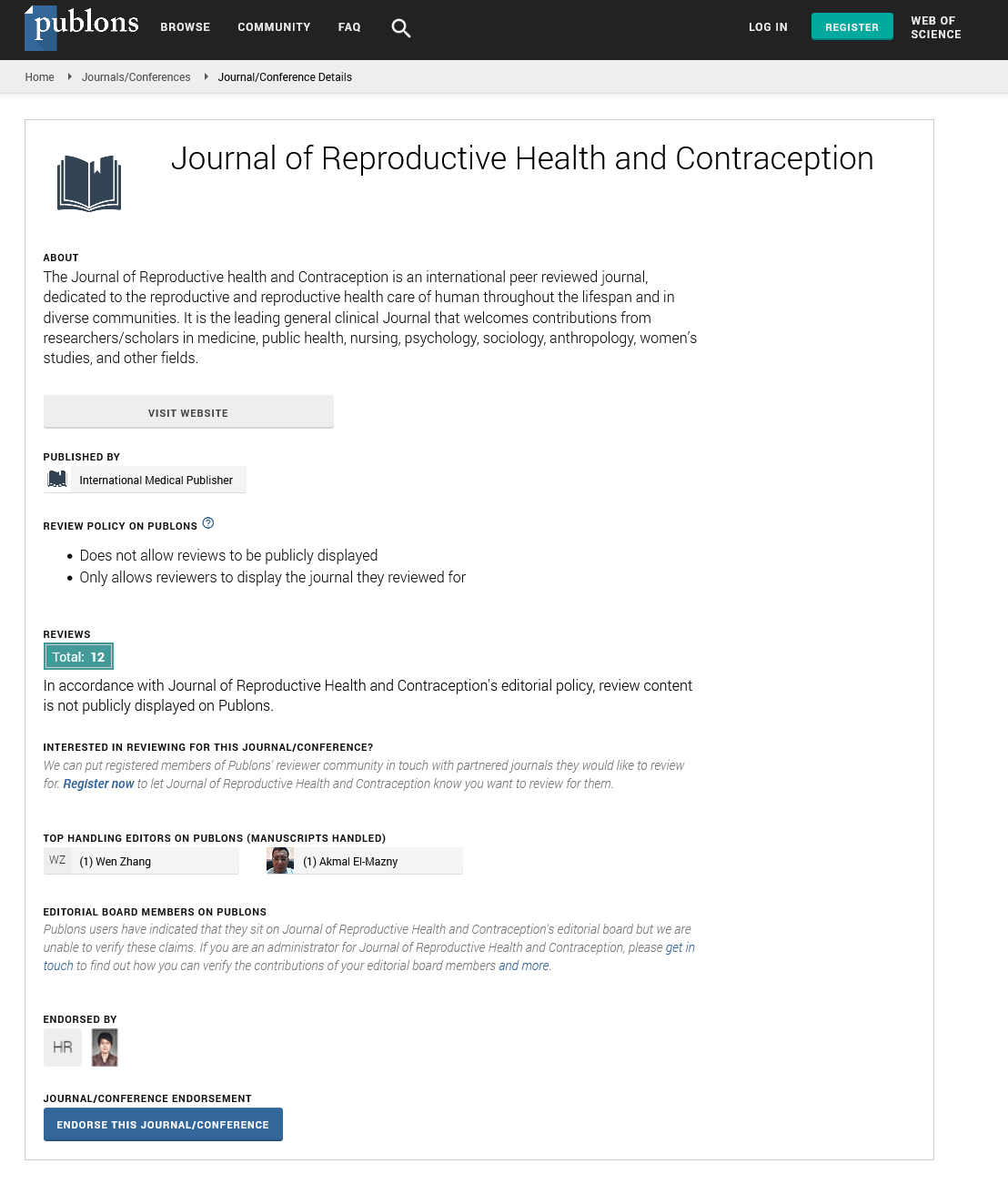ISSN : 2471-9749
Journal of Reproductive Health and Contraception
Why some women who attended focused antenatal care fails to deliver in health facilities: a qualitative study of women's perspectives from slums of Addis Ababa, Ethiopia
International Congress on Midwifery and Maternal health - May Webinar
May 19-20, 2021 | Webinar
Endalew G. Sendo
Addis Ababa University, Ethiopia
ScientificTracks Abstracts: J Contracept Stud
Abstract
Statement of the Problem: Despite the government's efforts to encourage childbirths in health facilities, the majority of births (an estimated 85%) still occur at home without skilled assistance, especially among slum dwellers in Ethiopia's capital, Addis Ababa. There is still no study on facility deliveries in Addis Ababa's urban slums, Ethiopia. The purpose of this study was to explore why some women who attended focused antenatal care (FANC) fail to deliver in health facilities from slums of Addis Ababa, Ethiopia. Public health facilities (3 health centers and 1 District hospital). A qualitative exploratory and descriptive research design was used. Study participants comprised of women of reproductive age group (18-49 years) living in slum areas of Addis Ababa, Ethiopia. We used 20 in-depth audio-recorded interviews. Data were analyzed concurrently with data collection. Thematic analysis was done for the study. A multi-level life-course framework of facility-based delivery in low- and middle-income countries (LMICs) developed by Bohren, et al was used to frame the current study and link the findings of the study to the body of knowledge. From the analysis of in-depth interview data, four themes emerged, namely, perceived benefits of home delivery, knowledge deficit about health facility-based delivery, poor access to health care facilities, and inadequate (demand side) resources. These themes were identified as a rich and detailed account of the perspectives of facility-based and home delivery among attendees of Focused Antenatal Care (FANC) in Addis Ababa, Ethiopia. The findings of this qualitative study revealed that perceived benefits of home delivery, knowledge deficit about health facility-based delivery, poor access to health care facilities, and inadequate (demand side) resources were related to low uptake of the facility-based delivery services. Using ANC visits to advise women about Birth preparedness and complication readiness, the use of facility deliveries and risks of home delivery to the mother and the new-born is recommended.
Biography
Endalew G. Sendo is an Assistant Professor at the School of Nursing and Midwifery, Addis Ababa University in Ethiopia and has accumulated knowledge and skill in Reproductive Health and maternal Health and I am a fervent educator, researcher, and Mentor. My background is in nursing and I studied for my Master’s degree in Maternity and Reproductive Health at Addis Ababa University. I also completed my Ph.D. studies at the University of South Africa in January 2020. I have cultivated clinical skills, teaching, and research skills through diverse experiences over the last 25 yrs. I have long years of both qualitative and quantitative research experiences. My research focuses on the sexual and reproductive health of adolescents and youth, STIs including HIV, maternal health, new-born and child health, Cervical and Breast cancer. I have supervised and mentored 36 post graduate students with their master’s thesis and I have also published 22 scientific papers in peer-reviewed journals.
Google Scholar citation report
Citations : 201
Journal of Reproductive Health and Contraception received 201 citations as per Google Scholar report
Journal of Reproductive Health and Contraception peer review process verified at publons
Abstracted/Indexed in
- Google Scholar
- China National Knowledge Infrastructure (CNKI)
- WorldCat
- Publons
Open Access Journals
- Aquaculture & Veterinary Science
- Chemistry & Chemical Sciences
- Clinical Sciences
- Engineering
- General Science
- Genetics & Molecular Biology
- Health Care & Nursing
- Immunology & Microbiology
- Materials Science
- Mathematics & Physics
- Medical Sciences
- Neurology & Psychiatry
- Oncology & Cancer Science
- Pharmaceutical Sciences
